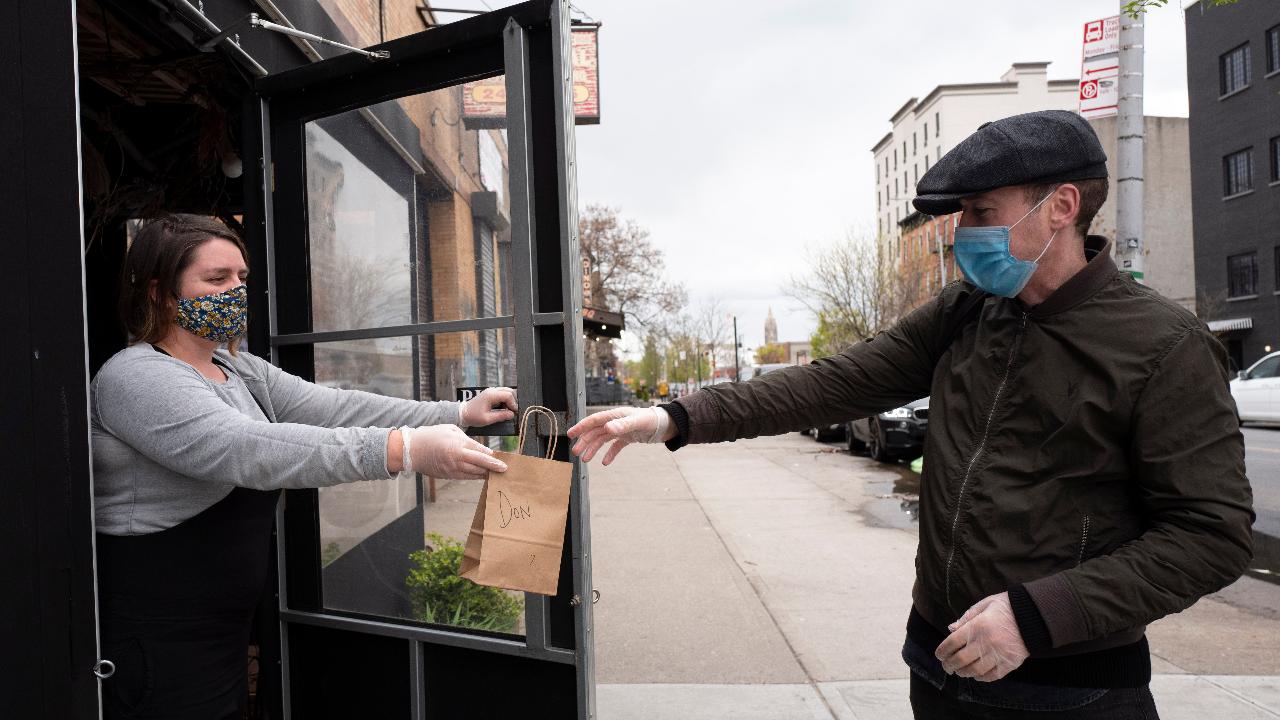Fed's Powell says US economy may need more policy help to avoid 'prolonged recession'
Avoiding a prolonged recession may require additional policy measures, Powell said
Get all the latest news on coronavirus and more delivered daily to your inbox. Sign up here.
Federal Reserve Chairman Jerome Powell said Wednesday that Congress and the White House may need to act further to pull the U.S. out of the worst economic downturn since the Great Depression and avoid the coronavirus-induced recession from becoming "prolonged."
“The coronavirus crisis raises longer-term concerns as well. Deeper and longer recessions can leave behind lasting damage to the productive capacity of the economy,” Powell said in remarks prepared for an online discussion with the Peterson Institute for International Economics. “Avoidable household and business insolvencies can weigh on growth for years to come.”
US CONSUMERS' EXPECTATIONS DETERIORATED 'SHARPLY' IN APRIL, FED SAYS
Avoiding those outcomes, Powell said, may require additional policy measures from the U.S. government. The central bank chief did not specify which policy measures should be considered.
So far, Congress has passed four massive stimulus packages totaling nearly $3 trillion to blunt the economic pain from the virus outbreak. That includes the $2.2 trillion CARES Act signed into law at the end of March, which established the Paycheck Protection Program, expanded unemployment benefits by $600 per week and sent one-time payments of up to $1,200 to Americans who earn less than $99,000.
"Additional fiscal support could be costly, but worth it if it helps avoid long-term economic damage and leaves us with a stronger recovery," Powell said. "This tradeoff is one for our elected representatives, who wield powers of taxation and spending."
House Democrats on Tuesday unveiled a $3 trillion coronavirus relief bill, though it faces a steep path to passage in the Republican-controlled Senate.
FED PLEDGES AGGRESSIVE ACTION TO SUPPORT US ECONOMY
The Fed has also taken a range of extraordinary actions to support the economy, including slashing interest rates to near-zero, purchasing an unlimited amount of Treasurys (a practice known as quantitative easing) and launching crisis-era lending facilities to ensure that credit flows to households and businesses. It has also said it will buy corporate bonds and lend to states and cities.
In the past six weeks, the Fed has pumped $2.3 trillion into the economy, an unprecedented amount.
But Powell said those actions may not be the "final chapter, given that the path ahead is both highly uncertain and subject to significant downside risks."
US ECONOMY SHRANK BY 4.8 PERCENT IN FIRST QUARTER
Powell spoke just a few days after the Labor Department released its April jobs report, providing the first comprehensive look at the damage inflicted by the virus outbreak. Employees lost 20.5 million jobs, pushing the unemployment rate to 14.7 percent, the highest since the Great Depression.
But it's possible the April jobs report, which relied on surveys conducted in the early weeks of the month, did not capture the full extent of the jobs carnage triggered by the pandemic. Powell said unemployment will continue to peak over the course of the next month.
"This reversal of economic fortune has caused a level of pain that is hard to capture in words, as lives are upended amid great uncertainty about the future," he said.




















